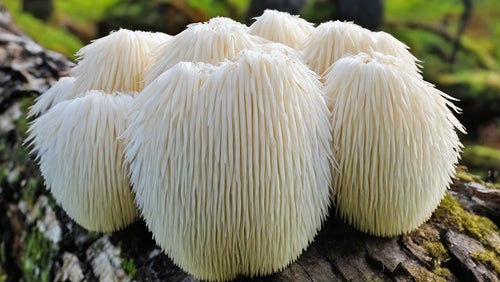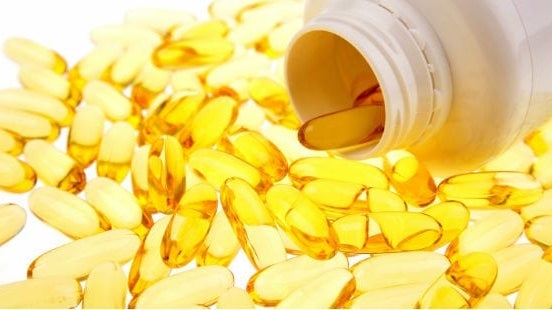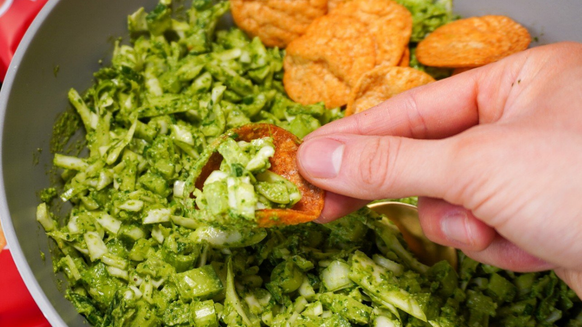
Reishi mushrooms have been used in traditional medicine for thousands of years for their supposed immune-boosting and anti-inflammatory properties.1
Known as the “mushroom of immortality”, these mushrooms are believed to hold many health benefits. So is it worth taking a daily supplement, and are there any downsides? Let’s take a closer look.
- What Are Reishi Mushrooms?
- Are Reishi Mushrooms Good for You?
- What Are Reishi Mushrooms Good For?
- Is Reishi an Adaptogen?
- How to Take Reishi Mushrooms
- Reishi Mushroom Side Effects
- What is the Best Reishi Supplement?
- FAQs
What Are Reishi Mushrooms?
Many mushrooms have special properties that set them apart from plant or animal foods.2
Reishi mushrooms specifically are believed to support health and longevity.3 They have a large, dark, glossy appearance. In fact, their scientific name, Ganoderma lucidum, comes from the Latin word lucidis and refers to this shiny exterior.3
Are Reishi Mushrooms Good for You?
Reishi mushrooms contain many bioactive compounds — around 400 in total — including phenols and polysaccharides, which are thought to contribute to any immune-boosting, anti-inflammatory, and antioxidant effects they may have.1,3
But that’s not all. Reishi mushrooms also have tons of other nutritional benefits. They contain many essential amino acids, and are rich in minerals, fiber, and polyunsaturated fats, making them a nutritious boost to any meal.2

What Are Reishi Mushrooms Good For?
Immune system
Reishi mushrooms are traditionally used to support the immune system. Some lab and animal studies suggest that reishi polysaccharides stimulate cytokines, molecules involved in immune response.4
In one study observing mice, reishi mushroom extract was linked to an increase in lymphocytes, “helper cells” key to immune function.5
However, to date, human studies have shown mixed results. While one study noted improved antioxidant status after short-term supplementation, another found no significant change in antioxidant or immune markers.6,7

7 Easy Ways To Supercharge Your Immune System
Stay feeling your best with nutritionist-approved advice....
Mental well-being
Reishi mushrooms are believed to promote relaxation and reduce stress, with some animal studies indicating reduced anxiety and improved sleep quality.8,9,10 This makes them popular in traditional and alternative medicine.
While promising, further research in human studies is needed to confirm these results.
Is Reishi an Adaptogen?
Adaptogens are natural substances thought to help the body manage stress by balancing the hypothalamic-pituitary-adrenal (HPA) axis, which regulates cortisol production.11
Reishi mushrooms are recognized for their adaptogenic properties, believed to improve resilience to stress and promote well-being.3
They may also support energy levels and reduce fatigue, as shown in a study where reishi extract improved symptoms in individuals with a fatigue-related condition.12
How to Take Reishi Mushrooms
Reishi mushrooms are available in various forms, including powders, capsules, and liquid drops.
You can add powdered reishi to teas, smoothies, or soups, or take it as a capsule. Tinctures can be added to water or taken directly.
You should always follow the recommended dosage on product packaging. Please speak to a professional if you are considering starting reishi supplements, especially if you take other medication or have any underlying health conditions.
Reishi Mushroom Side Effects
While generally safe for most people, reishi mushrooms may cause mild side effects in some, such as nausea and other kinds of stomach upset.13
As with any supplement, it’s best to speak to a healthcare professional before starting reishi mushrooms, particularly for those with pre-existing conditions, pregnant, or breastfeeding.
What is the Best Reishi Supplement?
Choosing the best reishi supplement depends on your health goals, so there are a few things to consider:
Understanding different parts of the reishi mushroom
One thing to consider is which part of the mushroom the supplement uses. For example, it’s believed that the mycelium (the root-like structure) and fruiting body each contain unique compounds, making them beneficial for different purposes.14 Therefore, selecting a supplement based on your specific health goals may be the most effective approach.
Opt for organic and third-party tested products
Choose reishi products that are organically grown and have undergone third-party testing for purity and potency. This testing ensures the supplement is free from contaminants like heavy metals or pesticides, making it safer for regular consumption.
Choose reputable brands with transparent practices
Finally, always buy from reputable brands with transparent sourcing and manufacturing practices. Look for brands that clearly state where and how their reishi is grown and provide detailed product information. This transparency is a good indicator of quality and helps you make an informed decision about what you’re putting into your body.

FAQs
What are mushroom supplements?
Mushroom supplements are made from various types of functional mushrooms, like reishi and lion’s mane.
Available in various forms including powders, capsules, tinctures, and teas, they are used for their supposed health benefits, such as boosting immune function and reducing inflammation.
Unlike culinary mushrooms you can cook and eat, functional mushroom supplements are concentrated extracts with higher doses of active compounds.
Is reishi safe?
Reishi mushrooms are generally considered safe for most people when taken in appropriate amounts. However, they may cause mild side effects in some. Those with health conditions, on medication, pregnant, or breastfeeding should consult a healthcare professional before taking a supplement.
While reishi supplements are widely available, quality can vary, so it’s important to purchase only from trusted brands.
Take Home Message
Incorporating reishi mushrooms into your wellness routine could offer a natural boost to health, from strengthening immune function to helping manage stress. However, as with any supplement, quality is key.
Choose high-quality products from trusted suppliers, consider potential side effects, and consult a healthcare provider before use, especially if you have pre-existing health conditions. With the right approach, reishi mushrooms could be a valuable addition to your well-being journey.
FIND OUT MORE ABOUT MUSHROOMS HERE:

What are Lion's Mane Mushrooms | Health Benefits & Uses
its health-promoting effects are well documented......

- Loyd, A. L., Richter, B. S., Jusino, M. A., Truong, C., Smith, M. E., Blanchette, R. A., & Smith, J. A. (2018). Identifying the “Mushroom of Immortality”: Assessing the Ganoderma Species Composition in Commercial Reishi Products. Frontiers in Microbiology, 9. https://doi.org/10.3389/fmicb.2018.01557
- Feeney, M. J., Miller, A. M., & Roupas, P. (2014). Mushrooms—Biologically Distinct and Nutritionally Unique. Nutrition Today, 49(6), 301–307. https://doi.org/10.1097/NT.0000000000000063
- Wachtel-Galor S, Yuen J, Buswell JA, et al. (2011). Ganoderma lucidum (Lingzhi or Reishi): A Medicinal Mushroom. In: Benzie IFF, Wachtel-Galor S, editors. Herbal Medicine: Biomolecular and Clinical Aspects. 2nd edition. Boca Raton (FL): CRC Press/Taylor & Francis; 2011. Chapter 9. Available from: https://www.ncbi.nlm.nih.gov/books/NBK92757/
- Zhu, X., & Lin, Z. (2006). Modulation of cytokines production, granzyme B and perforin in murine CIK cells by Ganoderma lucidum polysaccharides. Carbohydrate Polymers, 63(2), 188–197. https://doi.org/10.1016/j.carbpol.2005.08.002
- Zhao, R., Chen, Q., & He, Y. (2018). The effect of Ganoderma lucidum extract on immunological function and identify its anti-tumor immunostimulatory activity based on the biological network. Scientific Reports, 8(1). https://doi.org/10.1038/s41598-018-30881-0
- Wachtel-Galor, S., Szeto, Y. T., Tomlinson, B., & Benzie, I. F. (2004). Ganoderma lucidum (‘Lingzhi’); acute and short-term biomarker response to supplementation. International journal of food sciences and nutrition, 55(1), 75–83. https://doi.org/10.1080/09637480310001642510
- Wachtel-Galor, S., Tomlinson, B., & Benzie, I. F. (2004). Ganoderma lucidum (“Lingzhi”), a Chinese medicinal mushroom: biomarker responses in a controlled human supplementation study. The British journal of nutrition, 91(2), 263–269. https://doi.org/10.1079/BJN20041039
- Cui, X.-Y., Cui, S.-Y., Zhang, J., Wang, Z.-J., Yu, B., Sheng, Z.-F., Zhang, X.-Q., & Zhang, Y.-H. (2012). Extract of Ganoderma lucidum prolongs sleep time in rats. Journal of Ethnopharmacology, 139(3), 796–800. https://doi.org/10.1016/j.jep.2011.12.020
- Qin, Y., Zhao, Y., Hu, X., Chen, X., Jiang, Y. P., Jin, X. J., Li, G., Li, Z. H., Yang, J. H., Zhang, G. L., Cui, S. Y., & Zhang, Y. H. (2024). Ganoderma lucidum spore extract improves sleep disturbances in a rat model of sporadic Alzheimer’s disease. Frontiers in pharmacology, 15, 1390294. https://doi.org/10.3389/fphar.2024.1390294
- Yao, C., Wang, Z., Jiang, H., Yan, R., Huang, Q., Wang, Y., Xie, H., Zou, Y., Yu, Y., & Lv, L. (2021). Ganoderma lucidum promotes sleep through a gut microbiota-dependent and serotonin-involved pathway in mice. Scientific Reports, 11(1). https://doi.org/10.1038/s41598-021-92913-6
- Liao, L., He, Y., Li, L., Meng, H., Dong, Y., Yi, F., & Xiao, P. (2018). A preliminary review of studies on adaptogens: comparison of their bioactivity in TCM with that of ginseng-like herbs used worldwide. Chinese Medicine, 13(1). https://doi.org/10.1186/s13020-018-0214-9
- Tang, W., Gao, Y., Chen, G., Gao, H., Dai, X., Ye, J., Chan, E., Huang, M., & Zhou, S. (2005). A Randomized, Double-Blind and Placebo-Controlled Study of a Ganoderma lucidum Polysaccharide Extract in Neurasthenia. Journal of Medicinal Food, 8(1), 53–58. https://doi.org/10.1089/jmf.2005.8.53
- Klupp, N. L., Kiat, H., Bensoussan, A., Steiner, G. Z., & Chang, D. H. (2016). A double-blind, randomised, placebo-controlled trial of Ganoderma lucidum for the treatment of cardiovascular risk factors of metabolic syndrome. Scientific Reports, 6(1). https://doi.org/10.1038/srep29540
- Berger, R. G., Bordewick, S., Krahe, N.-K., & Ersoy, F. (2022). Mycelium vs. Fruiting Bodies of Edible Fungi—A Comparison of Metabolites. Microorganisms, 10(7), 1379. https://doi.org/10.3390/microorganisms10071379







